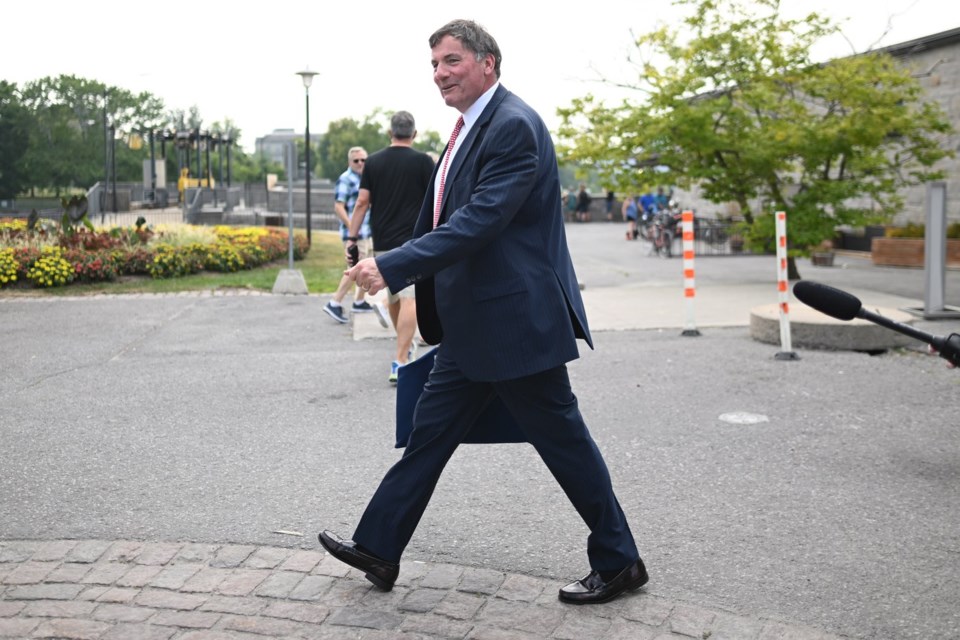WASHINGTON — Canada-U.S. Trade Minister Dominic LeBlanc met with U.S. Commerce Secretary Howard Lutnick on Tuesday in Washington as Ottawa looks to find relief from President Donald Trump's tariffs on key Canadian sectors.
LeBlanc's office described the meeting, which also included Canada's Ambassador to the U.S. Kirsten Hillman, as lengthy and constructive. Carney's Chief of Staff Marc-André Blanchard is also in the U.S. capital this week.
The meeting comes after Prime Minister Mark Carney announced last Friday that Canada will drop some retaliatory tariffs on U.S. products to match American tariff exemptions for goods covered under the Canada-United States-Mexico Agreement on trade, called CUSMA.
Canada imposed 25 per cent tariffs on a long list of American goods in March, including oranges, alcohol, motorcycles and cosmetics. Canada's CUSMA exemption for American imports will take effect on Sept. 1.
LeBlanc has said Canada's counter-tariffs were a significant point of contention with the Trump administration amid negotiations of a new economic and security relationship.
Canada's counter-tariffs on steel, aluminum and automobiles will remain. The tariffs on automobiles generally align with the United States but Canada's counter-tariffs on steel and aluminum remain at 25 per cent, despite the U.S. raising its rate to 50 per cent in June.
LeBlanc has said the goal of talks with the U.S. is a bilateral deal that lessens pressures of Trump's sectoral tariffs on industries like steel, aluminum and automobiles ahead of an upcoming CUSMA review.
Trump boosted tariffs on Canada to 35 per cent at the start of August with the White House saying the flow of fentanyl and retaliatory tariffs were behind the increase. Those duties are not applied to goods compliant under CUSMA.
Carney was in Latvia’s capital on Tuesday repeated that 85 per cent of Canadian goods remain tariff-free and Ottawa's focus is on the key areas being hammered by Trump's separate duties — steel, aluminum, automobiles, copper and lumber.
"Those are the areas where immediately we are focused on improving the outcomes if we can," Carney said in Riga during a news conference with Latvian Prime Minister Evika Siliņa. "And in order to do that… we will have to look at other areas where we can have win-win co-operation."
LeBlanc has said he's talking to Americans about "a package of stuff" that can include investment opportunities in areas like defence and security which could accompany tariff relief on Canadian sectors.
Trump has appeared unwilling to back down on his global tariff regime. During a marathon cabinet meeting — that played out in front of reporters for more than three hours on Tuesday — Trump repeatedly said his tariffs were bringing money into the federal coffers and reinvigorating domestic manufacturing.
The president said "factories are booming" and said auto production will be "thrilling" in two years because manufacturers are "building plants all over the country" due to the tariffs.
This report by The Canadian Press was first published Aug. 26, 2025.
Kelly Geraldine Malone, The Canadian Press



